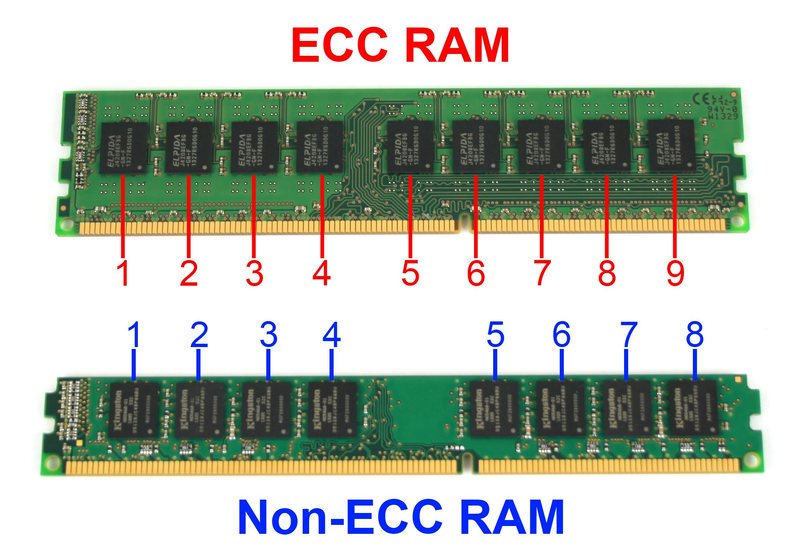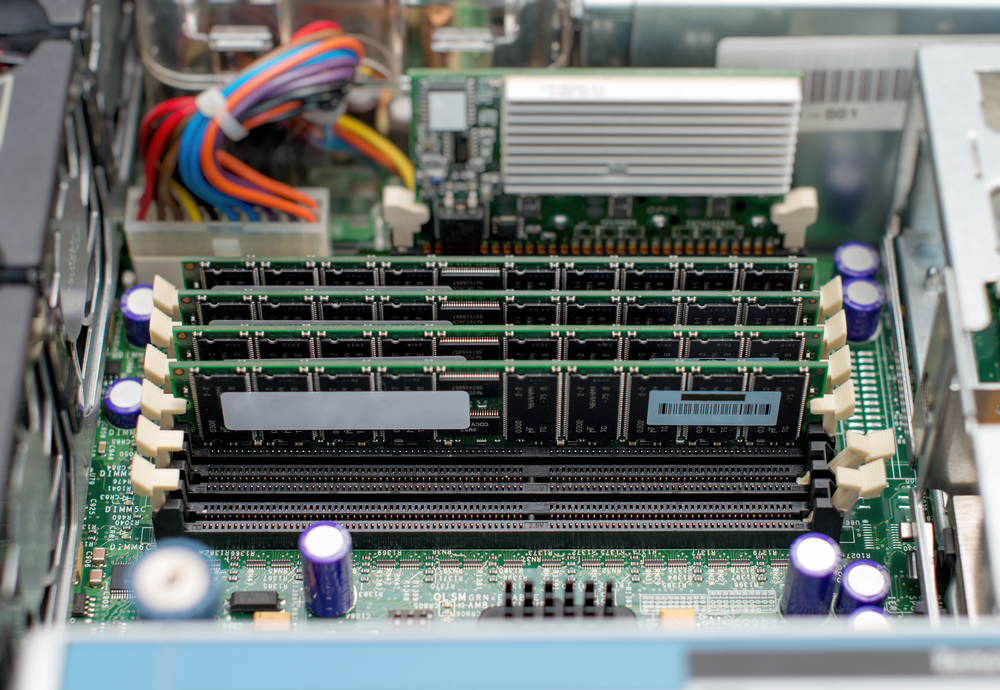What Is ECC Memory in RAM? A Basic Definition
Error correction code (ECC) memory is a type of RAM memory found in workstations and servers. It’s valued by professionals and businesses with critical data for its ability to automatically detect and correct memory errors, thus fighting data corruption. It’s also supposed to lead to less crashes of a server / workstation over non-ECC memory, making it really appealing to IT professionals and businesses, including financial institutions and public cloud service companies, where data corruption and outages are catastrophes.
ECC memory vs. non-ECC memory
Physically, ECC memory differs from non-ECC memory (like what consumer laptop / desktop RAM uses) in that it has 9 memory chips instead of 8 (memory chips are used to store data that is sent to the CPU when summoned). ECC RAM’s bonus memory chip is used for error detection and correction among the other eight memory chips.
Systems running ECC memory are supposed to crash less. In 2014, Puget Systems ran benchmarks and found ECC memory had a 0.09 percent failure rate, compared to non-ECC memory’s 0.6 percent failure rate.
What supports ECC memory?
ECC memory targets enterprise-grade workloads, so most consumer PC motherboards either won’t support ECC RAM or will run it without its ECC function. To actually enjoy the benefits of ECC memory, you'll need a workstation / server level motherboard. ECC memory is also more expensive than non-ECC RAM because of its extra memory chip.
Again, ECC memory is geared toward enterprise-grade workstations and servers. As such, a similarly heavy-duty CPU is needed to support ECC memory. For Intel CPUs, only the Xeon line supports ECC, in an attempt to differentiate its enthusiast-level processors from enterprise-level ones. Meanwhile, AMD’s core-abundant Threadripper line supports ECC memory.
ECC memory cons
Perhaps surprisingly, ECC RAM is a touch slower than non-ECC RAM, since it takes extra time to check for errors. In that same 2014 study cited above, Puget found that ECC RAM was 0.25 percent slower than non-ECC RAM, with Registered ECC RAM being 0.44 percent slower (however, they determined the performance difference in non-ECC’s favor is “tiny.”)
How does ECC memory work?
Error correction code is a mathematical process that ensures the data stored in memory is correct. In the case of an error, ECC also allows the system to recreate the correct data in real time.
Get Tom's Hardware's best news and in-depth reviews, straight to your inbox.
ECC uses a more advanced form of parity, which is a method of using a single bit of data (a parity bit) to detect errors in larger groups of data, such as the typical eight bits of data used to represent values in a computer memory system. Unfortunately, while a parity bit allows the system to detect an error, it doesn't provide enough information to correct the data error.
Most computing systems move data in larger chunks of 64 bits (referred to as a "word"). Instead of generating one extra parity bit for every eight bits of data, ECC generates seven extra bits per 64 bits of data. The system performs a complex mathematical algorithm on the extra seven bits of data to ensure the other 64 bits are correct. In the event of a single bit being incorrect (a single-bit error), the ECC algorithm can reconstitute the data, but it can only notify the system of larger errors (two or more bits).
Registered / buffered memory
ECC memory is not always registered / buffered. However, all registered memory is ECC memory.
ECC RAM often uses registered, aka buffered, memory. Registered memory uses a ‘register,’ which is located between the system’s RAM and memory controller. This reduces how hard the memory controller has to work and also makes it possible to use more RAM modules than there would have been otherwise.
This article is part of the Tom's Hardware Glossary.
Further reading:

Scharon Harding has over a decade of experience reporting on technology with a special affinity for gaming peripherals (especially monitors), laptops, and virtual reality. Previously, she covered business technology, including hardware, software, cyber security, cloud, and other IT happenings, at Channelnomics, with bylines at CRN UK.

